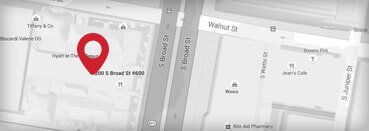Companies are finding themselves in an unprecedented situation, needing to make determinations that keep their employees safe while complying with state and federal laws during the current global health challenge.
Navigating responsibilities, employee rights, and requirements for compliance require complex calculations for employers with the recent spread of COVID-19 (coronavirus). While the Family Medical Leave Act (FMLA), the Americans with Disabilities Act (ADA), and other federal and state guidelines can provide instructions for those that have contracted the illness, measures dictated by social distancing are less clear cut.
So what are the factors that should be taken into consideration? Travel restrictions, implementation of remote work policies, and limiting exposure in offices that are open are all part of the current decisions facing businesses.
What are the most important points to consider at this time?
Travel Restrictions
Except in limited circumstances, such as military service, employers cannot prohibit their employees from traveling for personal reasons. However, they can request that they report any travel to assess risks of exposure.
It’s currently advisable that employers limit business-related travel to only essential trips and avoid high-risk domestic and international travel. Employers should be supportive of employee requests to avoid travel at this time.
Time Off and Sick Leave
Workers across the country are anxious about going into work in fear of exposure to COVID-19, even in areas where the outbreak has not been reported. Employers can help mitigate concerns by creating a transparent, proactive communication plan to update employees on local risk and measures being taken by leadership to create a safe workplace. However, state laws protect an employee’s right to a safe environment and if employees fear exposure from working conditions, they may be able to invoke state laws.
While the Family and Medical Leave Act provides job-protected leave for workers who have a health issue or have to care for a family member who does, this is unpaid and only applies to companies who have at least 50 employees. The tricky part comes in determining how to handle individuals who haven’t been diagnosed with COVID-19 due to testing limits but are recommended to be self-quarantined if they suspect to have the illness.
The current Centers for Disease Control (CDC) recommendations are for those who suspect they have the illness or have been diagnosed to isolate at home and avoid contact. If employees don’t qualify for any legally supported leave, it’s possible for them to use paid leave. But what if they don’t have sufficient paid leave? Are they owed pay considering the unprecedented nature of the situation? And what if you have a significant segment of your workforce with this very issue?
Considering that the COVID-19 situation may last for weeks or even months, these questions should be addressed early on. It’s incumbent on workplaces to find a solution that fits for their business values and model, as well as legal obligations, but as a general rule, employers aren’t required to pay non-exempt employees who take leave outside of any paid leave they might have.
Much of this can be mitigated by offering telework options for employees. However, not all employees have jobs that are suitable for remote work. If an employee has a medical condition that puts them at risk, they may be covered under job-protected leave via the ADA, FMLA, or state law.
Adopting Telework
Determining whether or not to allow telework, especially for businesses that could find it difficult to conduct remote business operations, can be a tough decision.
Should the federal or state government mandate a quarantine, employers may find themselves needing to shift to remote work arrangements. In transitioning your workplace to remote work, employers must consider cybersecurity issues, compliance requirements, and logistical issues for employees. Do your employees have access to secure networks? Will they work from personal devices or will you provide laptops? If they work from personal devices, how will they access work files and programs needed to do their jobs?
Answering these questions with internal decision-makers and your legal counsel can provide much-needed clarity in developing or adjusting your workplace practices to support your staff.
State Guidance
COVID-19 is a rapidly evolving situation across the country and a great deal of guidance is being issued by state governments. For example, in Pennsylvania and New Jersey, the governors have issued a mandate that temporarily shuts down restaurants (with the exception of take out), bars and entertainment and recreational facilities.
Affected employers must comply with these mandates. However, such clear guidance is currently the exception; most states are still operating in a grey area.
As noted here and elsewhere, COVID-19 is rapidly evolving and workplaces are moving quickly to adapt. Staying informed with accurate information is essential to making the most prudent decisions. Guidelines and updates can be found at the following sources:








